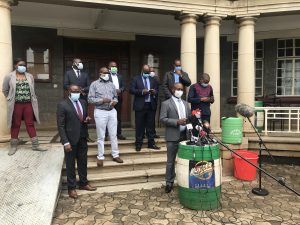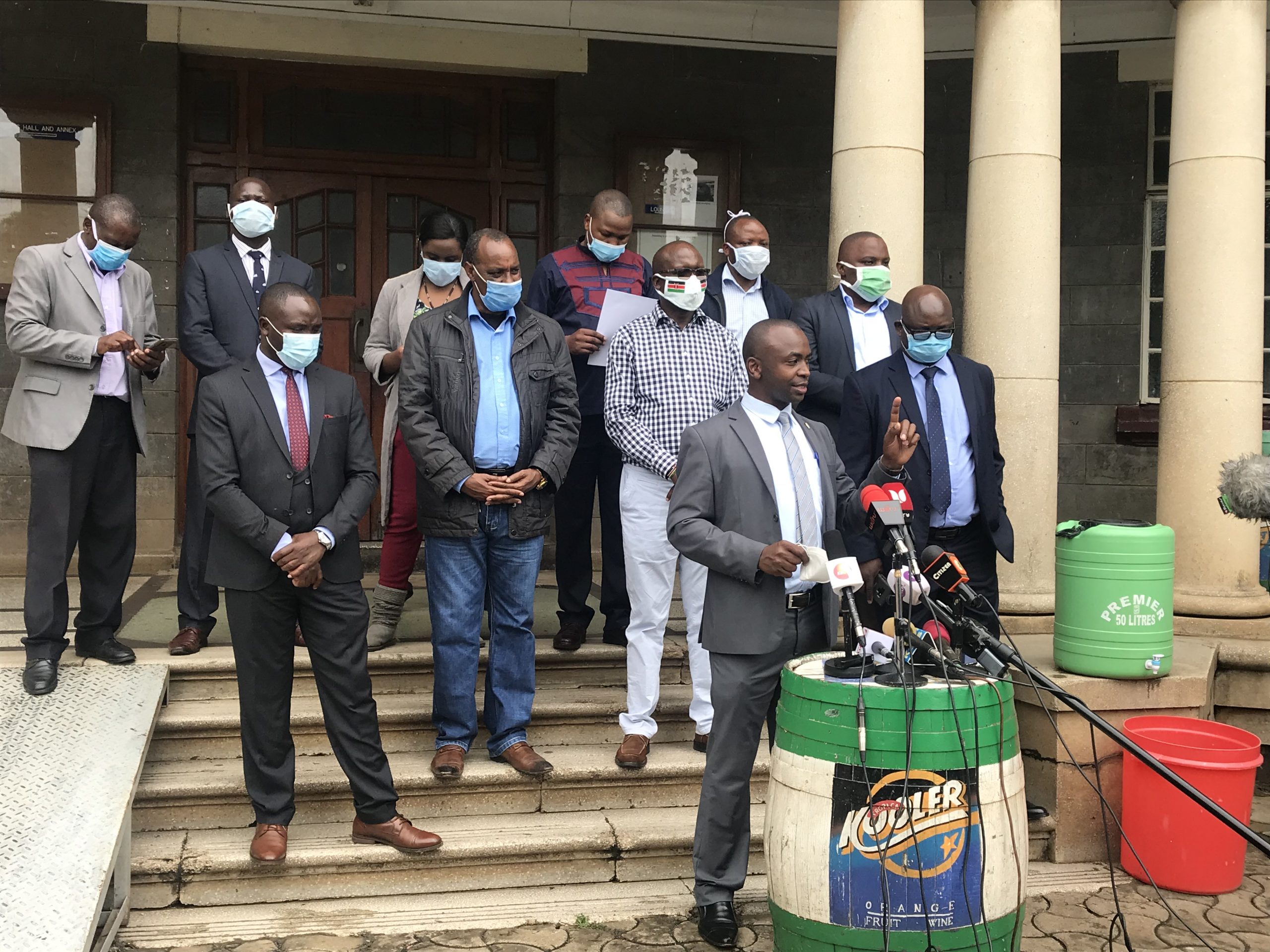*Health care workers in Kenya are set to strike if the government does not increase compensation and give COVID-19 workers protective gear.
“Front-line health care workers should be provided health insurance and treated equitably,” said Secretary-General of the Kenya National Union of Nurses Seth Panyakoo.
In a joint press conference last week, the Kenya Union of Clinical Officers, Kenya National Union of Nurses, Kenya National Union of Medical Laboratory Officers, and the Kenya National Union Pharmaceutical Technologist announced all nurses, laboratory practitioners, clinical officers and pharmacists would stay home “if the Ministry of Health would not ensure harmony, equity and the principal of equal pay for work of equal value as provided in the employment act.”
The Kenya Health Professional Society issued a seven-day industrial strike notice if the government of Kenya does not improve compensation and protection for COVID-19 healthcare workers.
In addition to lacking personal protective equipment, healthcare workers cite unequal compensation as part of the problem. Wages vary among the state-run providers, many healthcare workers do not receive health insurance, and a special risk allowance for COVID-19 workers has been inequitably distributed, which has ranged from $30 to $200. Healthcare workers have asked for equity “in vain,” said the unions, who also insist those healthcare workers especially trained to serve on the front-line of the COVID 19 pandemic.
Even heading to work is a problem as health care workers are frequently harassed between home and work. “Most health officers are being harassed by the police during curfew time, either when leaving for work or going home,” said George Gibore, Secretary General of Kenya’s National Union of Clinical Officers. “The scarcity of public transport during the pandemic has put most health workers at risk and unnecessary expense.”
The unions conducted a survey the first week of April, which showed most healthcare workers face transportation challenges as well as fear of unwittingly transmitting the virus to their families. “We have done the analysis,” said Gibore. “We know healthcare workers are at a higher risk than any other person.”
To mitigate harassment, some healthcare workers—but not all—receive a “commuter allowance” to subsidize transportation. The unions have requested a consistent payment as part of their demands to avoid a strike.
“Within seven days, if this issue will not be addressed, we will be back here to announce a nationwide strike,” said Panyakoo. “We will no longer sit back and see others enjoy the privileges given to the labor movement while health care workers are suffering.”
The potential strike comes when the government is in dire need of healthcare workers, a challenge named by the World Health Organization as “a critical shortage.” Statistically the country has one doctor for every 10,000 people, but the majority of those doctors work in the exclusive private care system. Most Kenyans use the public health care system, which in the past has been plagued by corruption, misappropriation of funds, and strikes due to poor working conditions.
Kenya reported 16 new positive cases for COVID-19 on Friday, raising the total number of cases to 336 and 14 deaths, said Health Chief Administrative Secretary Rashid Amani in a press conference. More than 20 patients are healthcare workers.

The new patients were among 945 tested in 12 counties over a 24-hour period. The government imposed a dusk to dawn curfew in the most affected and populated counties, including Nairobi, Mombasa, Kwale and Kilifi. Movement between counties is prohibited until further notice.
“The government may not win the war against COVID-19 if it does not take into consideration the heath workers’ affairs,” said Mohammed Duba, chairperson of the Kenya Health Professionals Society.
Kenya’s Ministry of Health has refuted claims that healthcare workers do not have enough personal protective equipment, said after reports emerged of healthcare workers placed into quarantine after coming in contact with COVID-19 patients.
The first case of COVID-19 was confirmed in Kenya on March 13. A total of 16,738 tests have been conducted.
(Editing by Stephanie Mikulasek and Allison Elyse Gualtieri)
The post Kenyan health professionals threaten strike amid COVID-19 appeared first on Zenger News.
We Publish News 24/7. Don’t Miss A Story. Click HERE to SUBSCRIBE to Our Newsletter Now!






